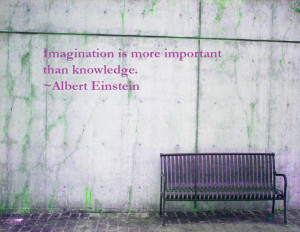 Untraditional, alternative, creative, innovative, and tenacious are all words that have been used to describe me. As hard as I try, I just don’t seem to get things done the same way as everyone else. My education and career path are no exception.
Untraditional, alternative, creative, innovative, and tenacious are all words that have been used to describe me. As hard as I try, I just don’t seem to get things done the same way as everyone else. My education and career path are no exception.
As my body aged I began to feel the wear and tear from working for more than 15 years as a massage therapist. I realized that my body could suffer long term damage if I continued to work as a massage therapist until retirement at the age of 65—still 30 years way.
At 34 years old, I took on a full class load at Salt Lake Community College. Four years later, I graduated from the University of Utah with an Honors Bachelor of Science degree in Writing and Rhetoric Studies.
I was the first student to be accepted in the new degree, and I was well aware of the career risks of getting a degree that most people would not recognize. However, I decide the individual attention and classes specific to the type of work I wanted to do, to not only be able to write, but address topics rhetorically, would make it worthwhile.
Throughout college, I had worked part time at an organization that focused on community literacy. I worked as a writing assistant, mentor, coordinator of writing groups, facilitated workshops, worked with diverse populations, and compiled and edited two books—all things writing related. I thought the position would be a great resume builder and help to prepare me for when I was looking for a full-time job.
I hit the job market, with a fresh off the press degree, about nine months ago. I wanted a position in technical writing, copy writing, or another entry level writing position. I started off strong, submitted dozens of resumes, and landed a few interviews.
Once the interview questions shifted from asking me about my degree (most applicants had journalism or English degrees) to questions about my work experience, I quickly learned how hard it is to shift from a non-profit position to a position in business.
Without fail, in every interview, I would be asked something along the lines of, “How will you handle shifting from working in a position that has the immediate benefit of working with and helping people to a position where you are simply a cog in the machine?”
I would answer the question with a statement comparing qualitative and quantitative data, and value, while different, is significant in both. I did not get a single job offer; I guess I never gave the answer they were looking for.
I left the interviews with one question on my mind, why would I want to work with a company that viewed me as simply a cog in the machine?
The answer is simple; I do not want to work with a company where educated, smart, innovative, and motivated employees are viewed as cogs in a machine. I want to work for a company that utilizes education, inspires creativity, trying on new ideas, and mentors employees to not only do their best, but also generate expansion and on-going education and training in new platforms.
My dream company may be idealistic. However, I feel that a correct fit between an employee and employer is essential for job satisfaction and employee retention. I was fortunate enough to receive a Graduate Teaching Fellowship in my area of study, but when I hit the job market again in a few years, I will be looking for a company to fit my career ambitions, rather than simply finding somewhere to punch my timecard.

I couldn’t refrain from commenting. Exceptionally well
written!